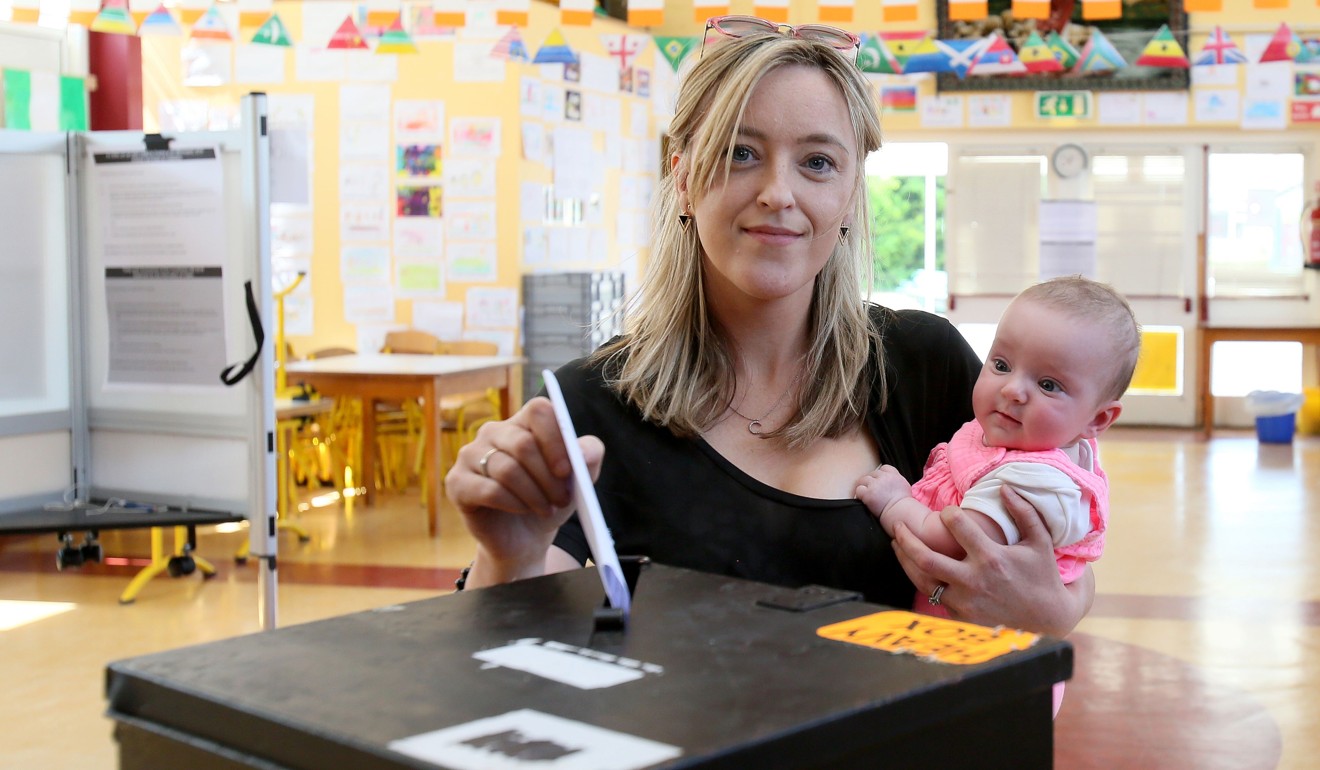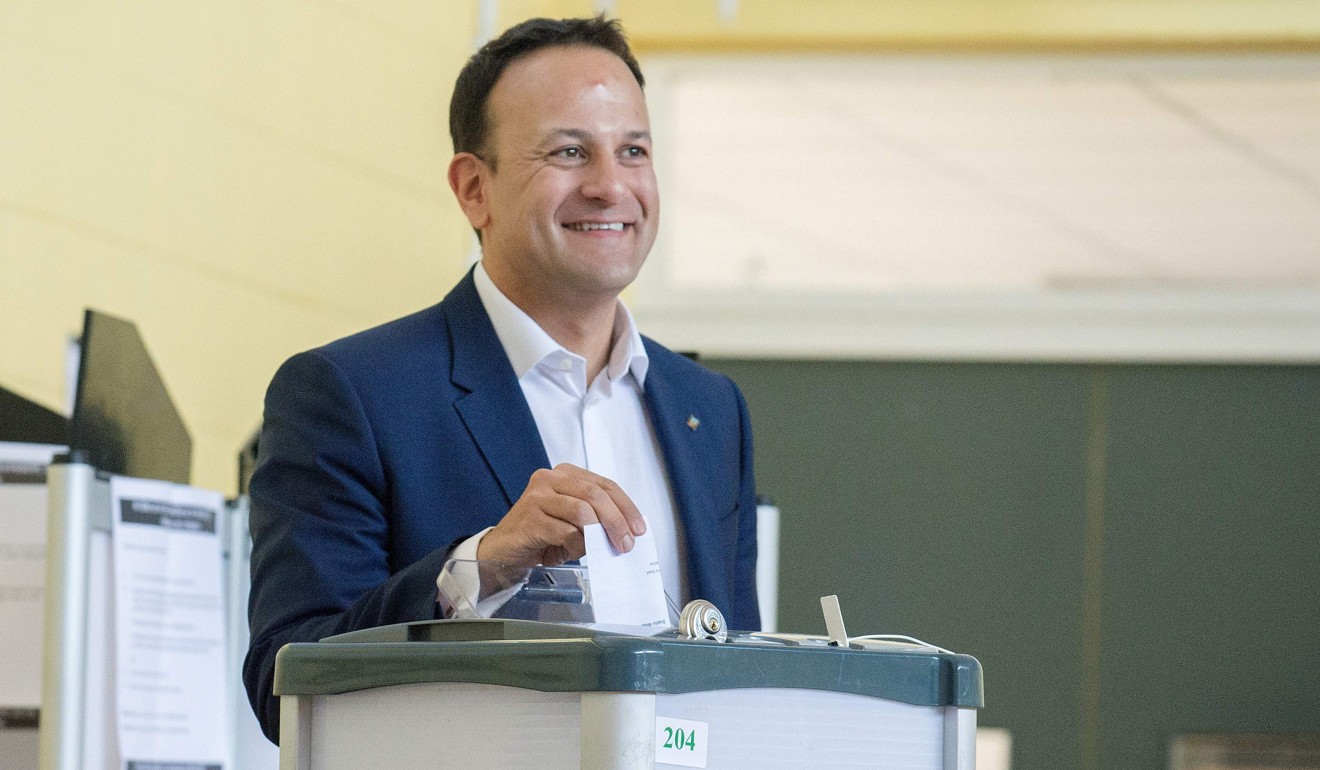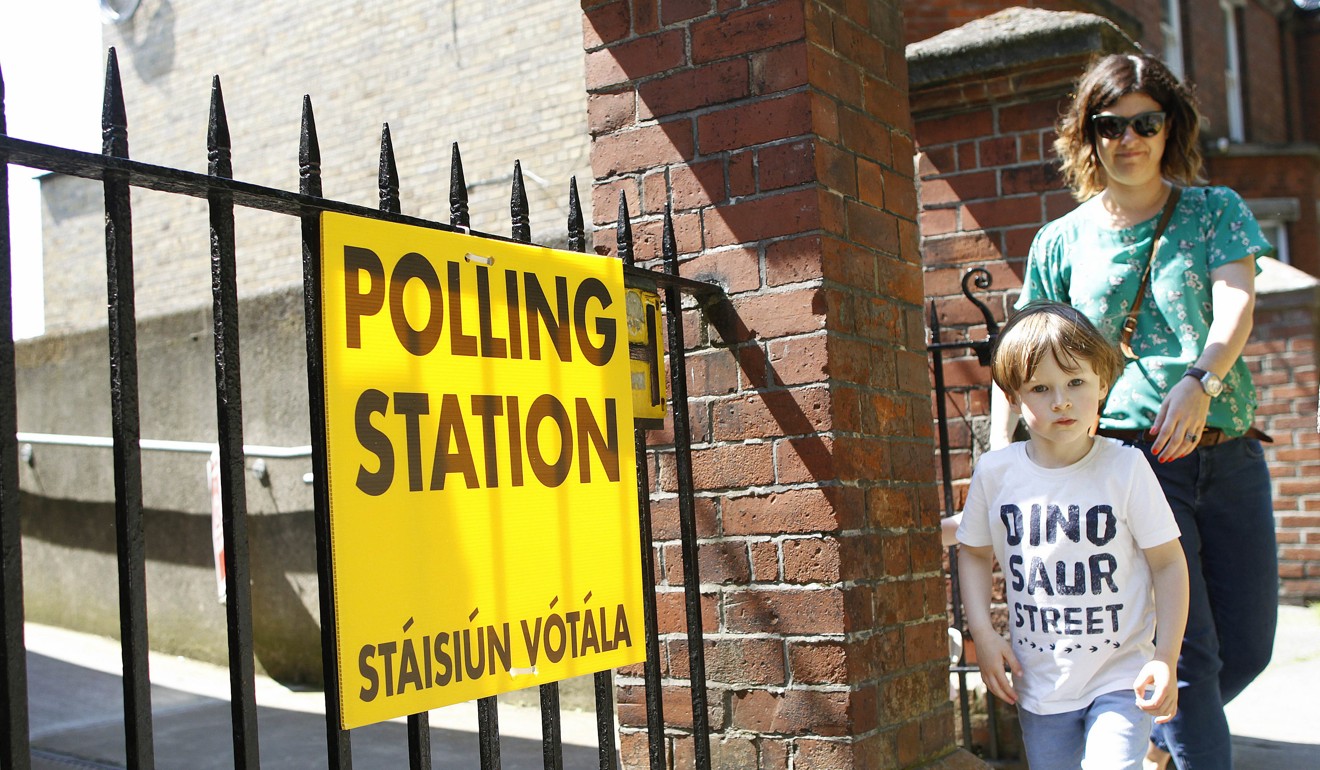
Ireland votes in historic abortion referendum
Opinion polls have suggested the result could be close, with large numbers of undecided voters hanging in the balance
Irish voters headed to the polls on Friday to vote in a landmark referendum on whether the traditionally Catholic country should liberalise some of the strictest abortion laws in Europe.
The campaign has dominated public debate in Ireland over recent months and has forced its nearly 3.5 million voters to decide whether the constitutional ban on abortion should stay or go.
Opinion polls have suggested the result could be close, with large numbers of undecided voters hanging in the balance.
Ireland was traditionally one of the most religious countries in Europe. However, the Catholic Church’s influence has waned in recent years following a series of child sex abuse scandals.

The referendum comes three years after Ireland voted to legalise same-sex marriage, in a seismic change for the EU nation.
The eighth amendment to the Irish constitution was installed following a 1983 referendum which approved outlawing abortion.
Subsequent legislation ruled anyone having an abortion could face 14 years in jail.

The ban has led to thousands of women travelling each year to Britain where terminations are legal, or increasingly turning to abortion pills sold online.
The law was tweaked in 2013 to allow terminations if the mother’s life is at risk, following the death of Savita Halappanavar, a pregnant woman originally from India who was refused an abortion.
The Irish government has proposed that if the eighth amendment is repealed, abortion will be allowed up to 12 weeks and between 12 and 24 weeks in exceptional circumstances.

The debate has split the country.
Gavin Boyne, 20, a philosophy student wearing a pink hoodie from the Love Both pro-life movement, said he owed his life to the eighth amendment.
His mother had accidentally got pregnant and had been sent to England by her parents for a termination, before they had a change of heart.
“My grandparents recognised that I was a unique human being with value and so they couldn’t have had me killed. If the eighth amendment wasn’t there in 1998, I wouldn’t be here today,” he said.

Meanwhile Ciara Grealy, 21, from Dublin, said: “I don’t know why we should export women to another country to have something that should be done safely and legally here.
“One of my best friends had to do it. She found out she was pregnant; the doctors said ‘our hands are tied’. She had to get a flight to Liverpool with her parents.” She said her friend had found seeing the omnipresent referendum placards distressing.
Activists were out on a final push for votes on Thursday, attempting to convince wavering voters in what has been an emotionally-charged campaign.
Meanwhile city streets are filled with people wearing campaign badges, stickers and tops.
The count will begin at 9:00am local time on Saturday, with the result expected to be announced at Dublin Castle later in the day.

.png?itok=arIb17P0)